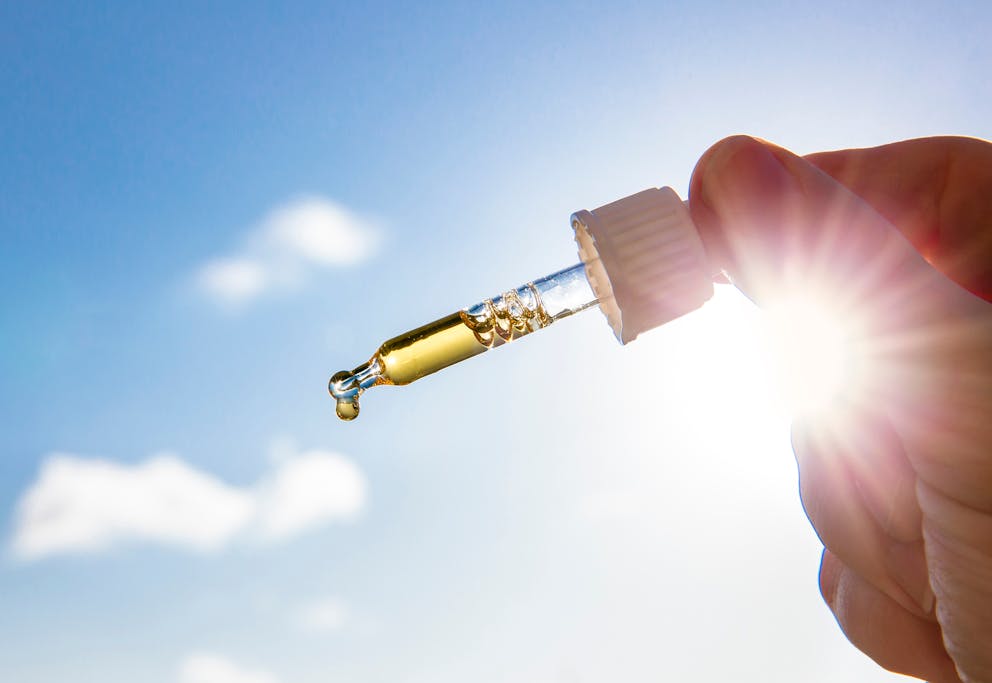The Benefits of Pine Oil
Extracted from the needles of pine trees, pine essential oil is a powerhouse of health benefits that have been utilized for centuries. It has potent antimicrobial properties that fight bacteria and combat viruses and can help to manage fungal infections.
Learn about various methods to use pine tree essential oil safely and effectively – whether through topical application after proper dilution with a carrier oil like coconut oil or eucalyptus oil, ingestion in diluted form, or inhalation via diffusion.
Understanding Pine Oil
Pine oil is a potent essential oil derived from various parts of the pine tree, including the stump, needles, twigs, and cones.
Through distillation, this concentrated substance is extracted, boasting impressive antimicrobial properties. It's an invaluable addition to your natural remedies collection.
What Is Pine Oil?
Pine oil is essentially an essential oil extracted through steam distillation from the fresh twigs and needles of certain species of pine trees.
Notably rich in alpha-pinene, a compound known for its strong antiseptic properties, it has been used traditionally as a home remedy for several ailments.
The Origin Of Pine Oil
This powerful essential oil traces back to ancient civilizations, where people recognized its medicinal value early on.
For instance, Native Americans used it extensively for treating respiratory issues, while Egyptians employed it as part of their embalming process due to its preservative qualities.

Different Types Of Pine Oils
Scotch Pine: Also known as Pinus sylvestris or forest pine, native to Europe and Asia but now found globally.
Dwarf Mountain Pine: Known scientifically as Pinus mugo, native to high-altitude regions in Europe.
Norfolk Island Pine: Scientifically called Araucaria heterophylla, originally from Norfolk Island near Australia but now grown worldwide.
The Aroma Of Pine Essential Oil
If you've ever walked through a dense forest filled with towering pines after rainfall, you're instantly familiar with the refreshing scent that fills your senses.
That's precisely how pure, unadulterated pine essential oils smell - crisp, clean air infused with earthy woodiness.
Antimicrobial Properties of Pine Oil
Pine oil, derived from the stump, needles, twigs, and cones of pine trees, is a potent essential oil with impressive antimicrobial properties. It can control harmful microorganisms such as bacteria, viruses, fungi, and candida that cause various health issues.
Fighting Bacteria with Pine Oil
The antibacterial effects of pine oil are well-documented in scientific literature.
For instance, a study published by the National Center for Biotechnology Information (NCBI) found that pine oil effectively inhibits the growth of E.coli and Staphylococcus aureus - two common types of bacteria known to cause infections in humans.
This makes it an excellent natural alternative to chemical disinfectants.
Controlling Viruses using Pine Oil
Beyond its antibacterial properties, pine oil also exhibits antiviral characteristics. It's been observed to be effective against several strains of influenza virus, according to research published on PubMed Central.
Therefore, incorporating this essential oil into your daily routine could help boost your immune system against viral attacks.
The Anti-fungal Effects of Pine Oil
Pine oils have also shown promising results when tested against certain fungal species. Pine oil may inhibit the growth and spread of Candida albicans, which causes yeast infections in humans.
Moreover, it has been found effective against Aspergillus niger - a fungus responsible for causing black mold on fruits and vegetables. In addition to these direct microbial benefits, there are indirect advantages associated with using pine oil.
The fresh scent emitted by diffusing this powerful essential oil not only purifies the air but also uplifts mood due to its calming effect - making it an ideal choice for aromatherapy sessions at home or office spaces.
Health Benefits of Pine Oil
Pine oil, a potent essential oil derived from various parts of pine trees, has numerous health benefits. Pine oil has a wide range of benefits beyond just its antimicrobial properties, such as treating skin conditions.
Skin Conditions
Pine oil's antiseptic and anti-inflammatory properties make it beneficial for treating a variety of skin conditions, such as relieving dandruff and itchiness when diluted with carrier oils like coconut oil, while also promoting wound healing.
Once diluted with carrier oils such as coconut oil, it can alleviate symptoms associated with dandruff and itchiness, improve blood circulation, and speed up wound healing.
Achy Joints
Pine oils can relieve achy joints or muscle pain due to strenuous activities or age-related issues. The analgesic properties of pine oil can be utilized to assuage sore muscles and reduce joint inflammation.
Dilute the pine oil with carrier oil before applying topically on affected areas for the best results.
Respiratory Infections
Inhaling diffused pine essential oil is believed to relieve respiratory infections such as sinusitis or bronchitis thanks to its expectorant qualities, which aid in breaking down mucus and phlegm build-up.
Essential oils are often used as part of holistic treatments for respiratory health.
Beyond these common uses, research suggests that compounds found in certain types of pines may even play a role against Lyme disease caused by ticks - although more studies are needed to confirm this benefit fully.

Essential Oils for Toothaches
If you're experiencing tooth pain, essential oils can provide relief. Pine oil, or pine tree essential oil, is one such option.
The Benefits of Pine Oil
Pine oil has anti-inflammatory properties that can help reduce swelling and pain in the affected area. It also has antimicrobial activity, which means it can fight off harmful bacteria that may be causing toothaches.
You can use pine oil by diluting it with a carrier oil like coconut or tea tree oil before applying it to your gums or teeth. Alternatively, add a few drops of pine essential oil to warm water and use this mixture as a mouthwash.
Other Essential Oils for Toothaches
In addition to pine oil, other essential oils have been shown to relieve toothache pain:
Eucalyptus Oil: Eucalyptus contains compounds that have analgesic (pain-relieving) effects when applied topically. You could mix eucalyptus with a carrier oil and apply it directly to the affected area.
Clove Oil: Clove contains eugenol, commonly used in dentistry due to its numbing effect on nerves.
Tea Tree Oil: Tea tree oil has antimicrobial properties that can help fight off bacteria and reduce inflammation. You could mix tea tree with carrier oil or add a few drops to warm water for mouthwash.
Ways to Use Pine Essential Oil
Pine essential oil is a versatile natural remedy that can help with various health issues. Here are three primary methods to harness the power of pine essential oil.
Dilution Method for Topical Application
One way to use pine essential oil is by applying it topically on your skin. However, it's highly concentrated and should never be applied directly onto the skin without diluting first.
Mix a few drops of pine oil with coconut or other carrier oils such as jojoba or almond oil before applying.
Skin conditions: Apply the diluted mixture on affected areas for relief from dandruff and itchiness.
Achy joints: Massage the diluted solution into painful joints for soothing relief.
Ingesting Diluted Pine Essential Oil Safely
If ingesting orally is your preferred intake method, remember that safety comes first.
Always dilute one drop of pine essential oil in water before consumption. But do so sparingly, as overconsumption may lead to adverse effects. It is also essential to remember that not all brands are suitable for ingestion; thus, it's critical to check labels and get advice from a healthcare expert if uncertain.
Regular intake might help fight against Lyme disease caused by ticks - though further research is needed.
Benefits of Inhalation Through Diffusion
Inhalation via diffusion is a great way to enjoy the benefits of pine essential oil. Add a few drops of pine essential oil into your diffuser filled with water and let it disperse throughout your space.
Mood Enhancement: The refreshing scent can uplift mood and create a calming environment at home or work.
Breathing Relief: The antimicrobial properties may help clear up sinus congestion and alleviate symptoms related to colds and flu.
Conclusion
Pine oil has been used for centuries for its numerous health benefits, including its antimicrobial properties that can help fight bacteria, viruses, and fungi, as well as provide relief for skin conditions, achy joints, and respiratory infections.
Suppose you want to improve your health and well-being with pine essential oil. In that case, there are several ways to do so, such as applying it topically by diluting it with a carrier oil, ingesting it safely by adding a few drops to your food or drink, or inhaling its aroma through diffusion.
Not only is pine oil great for your health, but it also has a refreshing and invigorating scent that can help boost your mood and energy levels.
Previous blog
The Important Nutrient and Longevity LinkNext blog
Eat More Shellfish on Ketogenic DietTags

Popular
08/21/2024
55.7K views
02/23/2025
46.8K views
11/18/2024
281.2K views
03/18/2024
11/21/2022




